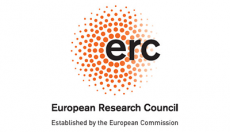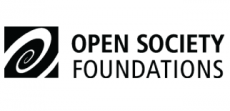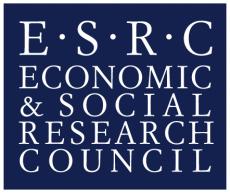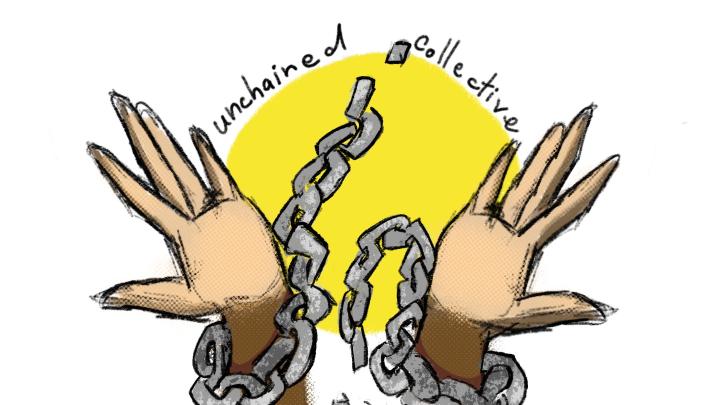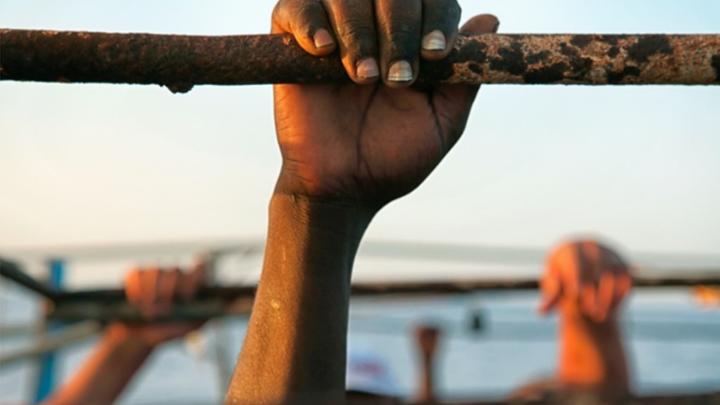Moria Refugee Camp: Restriction of Movement and Living Conditions
Posted
Time to read
Guest post by Mary Malafeka, attorney-at-law. Mary is a graduate of Aristoteles University of Thessaloniki Law School. From February 2016 to June 2016, she worked as a volunteer at the temporary refugee camp in Piraeus port, providing legal information and counseling on the asylum process. Since October 2016, she has been working for the ‘Greek Council for Refugees’ on the islands of Samos and Lesvos, and currently in Athens, providing free legal aid to asylum seekers. This is the final post of Border Criminologies' themed series 'Hotspots and Plethora of Freedom-Restricting Measures', organised by Izabella Majcher.
Third country nationals arriving on the Aegean islands, after the implementation of the EU- Turkey deal and the introduction of the ‘hotspot approach’, experience a very complex reality, where the policies and procedures applied are constantly changing and often leading to breaches of the Greek legislation. This post aims to explain the procedures applied on Lesvos, the island, which has been receiving the largest number of arrivals since 2015. According to data received from agencies in the field, more than 12.000 people arrived in 2017. Compounding matters, the low capacity of accommodation facilities, has led to a very complicated scheme where the hotspot of Moria functions simultaneously as a Reception and Identification Centre (RIC) as well as an open accommodation facility.
According to Greek Law, displaced people arriving on the Aegean islands should be placed in the RIC, where while being under ‘restriction of liberty’, they undergo reception and identification procedures. They should then be referred to proper accommodation facilities. On Lesvos, all newly arrived people are transferred to the hotspot of Moria where they are registered and their personal data is identified. This procedure is performed by the Greek Police, Frontex and EuroDac and takes place inside the premises of the Reception and Identification Service (RIS). Inside the premises of RIS and between the offices of other actors present in the camp, there is a limited area, designated and separated by a low fence, where the applicants have to remain until the procedure is completed. The length of this procedure may differ, depending on the number of the people arriving. However, as of January 2018 it is usually concluded within the first day of arrival. After the identification procedure is completed, people are allowed to leave the designated area and look for a place to reside in the hotspot.
According to article 14 paragraph 2 Law 4375/2016 ‘Third-country nationals or stateless persons entering the RIC, shall be placed under a status of restriction of liberty by decision of the Manager of the Centre, to be issued within three (3) days of their arrival. If, upon expiry of the three days, the above procedures have not been completed, the Manager of the Centre may, decide to extend the restriction of the freedom of the abovementioned persons until the completion of these procedures and for a period not exceeding twenty-five (25) days from their entry into the Centre.’
On Lesvos, the decision of the manager regarding the extension of the restriction of movement is issued and notified to everyone, however, in practice, the law as outlined above is not applied. The absence of control and patrolling allows anyone to enter and exit the facility at any time, since the first day of their arrival; hence detention is not strictly imposed.
Alternatively, the restriction of movement within the island has become another form of detention. In fact, anyone arriving on the islands after the entry into force of the EU Turkey deal should remain on the territory of the island until the asylum procedure is completed. It appears that one of the reasons behind the strict application of the geographical restriction is the effort to ensure an efficient implementation of the EU Turkey deal. According to unofficial information provided by the Greek authorities, Turkish authorities only approve the readmission of people who have not left the islands.
On exceptional cases, i.e. people with vulnerabilities (e.g. pregnant women, elderly or disabled people etc.), the geographical restriction may be lifted because of medical needs, which cannot be treated in the public hospital of Mitilini. In these cases, the Regional Asylum Office of Lesvos is the only competent authority to conduct the examination of the asylum application, so the applicant is obliged to return to the island as soon as the health problem is treated. However, evidence from the field shows that the Regional Asylum Office and the Regional Police Department, often, refrain from suspending the geographical restriction, further exposing vulnerable people to health-related risks, as applicants have at times absconded. For instance, a family with a 15 months old child with heart problems were denied suspension of their geographical restriction for more than 2 months.
The measure of the geographical restriction, which is communicated to the applicants by a red stamp on the asylum applicant’s card, is of high importance since people who do not comply with it are subjected to detention. In particular, people who abscond from the island and travel to the mainland, when detected by the authorities, are arrested, detained and transferred back to Lesvos by the police. There they can be detained in the pre-removal detention centre for violating the terms of their geographical restriction.
Further, the extremely lengthy asylum procedures and the severe overcrowding of Moria, which is also caused by the measure of the geographical restriction, expose displaced people to substandard living conditions in terms of sanitation and hygiene. Access to essential services, such as health care, is very limited as the responsible agency in Moria, KEELPNO and the Public Hospital of Mytilene are understaffed and appointments with doctors are hard to achieve. Moreover, the security situation in Moria has reached critical levels, tensions persist every day and incidents of violence and abuse are very common.
To provide safety and better living conditions to unaccompanied minors and single women, ‘section B’ in the facility, has been established. Although multiple efforts have been made to improve the conditions in this section, overcrowding and frequent riots among the minors remain a problem. According to official information, 350 unaccompanied minors were accommodated in section B as of 15th of December 2017. These minors are not allowed to leave Moria centre until they are referred to a shelter and they are thus, obliged to endure poor living conditions and the unsafe environment for an extended period of time.
At the end of November 2017, 6.500 people resided in Moria, a facility whose capacity should not exceed 3000 people. Due to this fact, a makeshift camp has been created by asylum seekers next to the actual camp of Moria, where people are even more exposed to the risk of getting harmed and inhumane living conditions. Under the pressure of winter planning, a campaign was launched by First Reception and UNHCR, to evacuate the camp and improve the conditions of the facility. Since December 2017, more than 2.000 vulnerable people have been transferred from Lesvos to the mainland. However, an estimated number of 5.500 people are still residing in Moria. Of those, 2.000 are still living in tents without heating.
Alongside the geographical restriction measures, another practice of automatic administrative detention has also emerged on Lesvos. In September 2017, the Supreme Administrative Court of Greece decided that Turkey can be considered a safe third country for Syrian asylum seekers. Following a judgment by the Supreme Administrative Court of Greece, which declared Turkey a safe third country for Syrian asylum seekers, a so-called pilot program was introduced by the Greek authorities (Greek Asylum Office and Greek Police) according to which all Syrian single men would be detained upon arrival, based on art. 46 Law 4375/2016. The program was initially applied in the cases of three Syrian nationals at the end of October 2017. The cases were challenged through objections against detention before the Administrative Court of Mytilene, where the Judge ordered the detention to be lifted and replaced it with the obligation to remain on Lesvos.
Since then, the pilot program has been modified and the automatic administrative detention upon arrival may be applied only against single men from countries with low recognition rate (under 25%), such as Algerians, Moroccans, Pakistanis, perhaps as a form of deterrence. The pre-removal detention centre, which is situated inside the hotspot of Moria, can accommodate about 110 detainees and the police station of Mytilene about 20, while the average number of daily arrivals on the island is 80. In addition, the same centre detains third country nationals, who are under a readmission process, as well as the applicants who face criminal charges. Hence, the pilot detention programme is applied only to limited cases in arbitrary ways due to the limited capacity of the facility.
The conditions at the detention centre are inhumane. Detainees have only one-hour access to a telephone and one hour of outdoor activity, per day. According to ‘from the field’ reports, the number of detainees who experienced serious medical or mental health issues increased, yet, the access to doctors and psychologists remains limited. Furthermore, the lack of sufficient and efficient monitoring in detention has led to multiple breaches of legal guarantees. For example, a minor applicant was detained before the completion of the age assessment procedure.
In light of the above, it is clear that the context of detention and restriction of movement in the Aegean islands has been shaped in an arbitrary manner, and legal protections often do not automatically translate into actual protection because of their poor implementation. The complicated and ever-shifting procedural and legal frameworks fail asylum seekers time and again by focusing on ensuring that all applicants remain on the island, without due regard for their physical or mental health.
Any comments about this post? Get in touch with us! Send us an email, or post a comment here or on Facebook. You can also tweet us.
__________
How to cite this blog post (Harvard style)
Malafeka, M. (2018) Moria Refugee Camp: Restriction of Movement and Living Conditions. Available at: https://www.law.ox.ac.uk/research-subject-groups/centre-criminology/centreborder-criminologies/blog/2018/04/moria-refugee (Accessed [date]).
YOU MAY ALSO BE INTERESTED IN
With the support of



